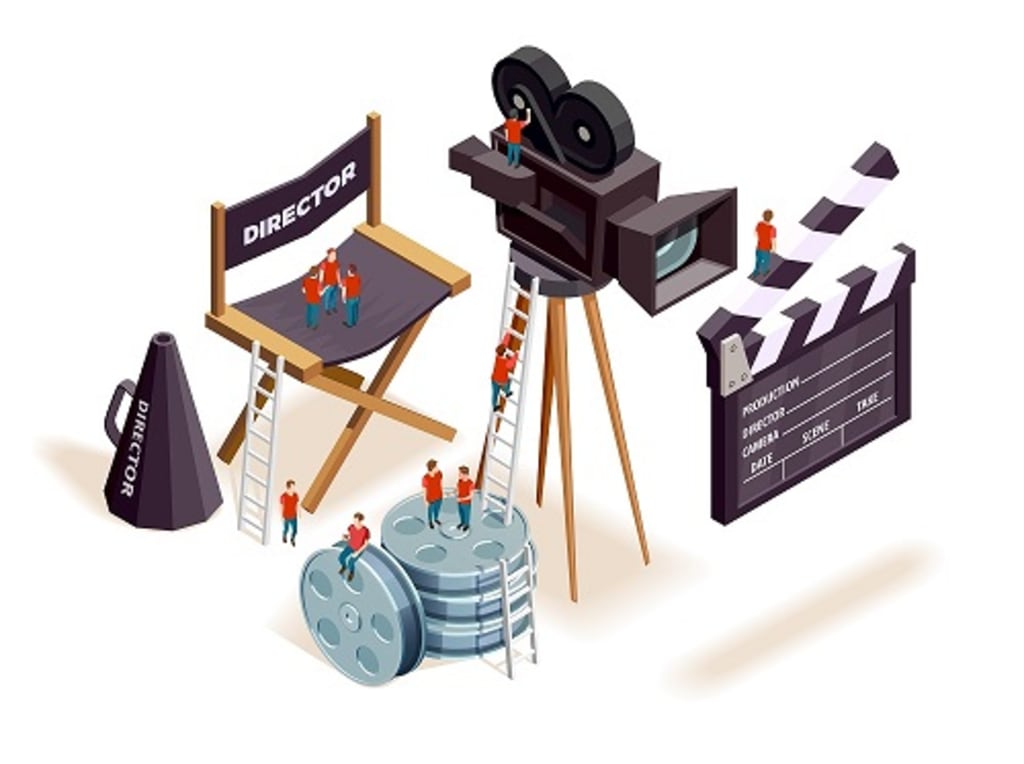Everything You Need to Know About Filmmaking
Filmmaking is a complex and collaborative art form that involves many different stages, from development to production to post-production.

Being involved in the field of filmmaking is both exciting and fulfilling offering a range of roles to explore. If you have an interest, in pursuing a career in this industry there are steps you can take to get started. First and foremost it's essential to acquire a foundation in fundamentals.
This can be achieved through means like enrolling in film courses at a college or university attending workshops dedicated to the craft or delving into literature and articles that shed light on the art of filmmaking. Once you have grasped the basics of filmmaking you can begin delving into areas of specialization and exploring roles within the field.
The most common filmmaking roles include
Director
The director holds the responsibility of shaping the creative vision for a film. They collaborate closely with actors, cinematographers and other crew members to bring their vision to life on screen.
Cinematographer
The cinematographer is entrusted with crafting the aesthetics of a film. Working closely with the director they determine camera angles, lighting schemes and other visual elements that contribute to the films desired look.
Editor
The editor plays a role in assembling shots from a film into a cohesive narrative. Collaborating with the director they make decisions regarding pacing and rhythm that enhance storytelling.
Producer
Lastly producers handle the business aspects of filmmaking. Ensuring operations behind the scenes by managing budgets securing financing opportunities coordinating logistics, among departments involved in production.
They are responsible, for securing resources for the film hiring the crew members and supervising the production process. Apart from these responsibilities there are other specialized positions, within the realm of filmmaking, including;
Script writer
The script writer is responsible for writing the screenplay for the film.
Actor
Actors bring the characters in the screenplay to life.
Cinematographer
The cinematographer plays a role, in shaping the aspects of a film, including camera angles, lighting and composition.
Sound designer
The sound designer takes charge of all the elements in a film encompassing dialogues, music and sound effects.
Editor
The editor skillfully assembles shots to weave a seamless and engaging narrative.
If you have an interest in pursuing a career in filmmaking it is vital to connect with filmmakers and professionals within the industry. You can achieve this by attending film festivals, workshops and other industry events.
Tips for writing a great script:
Start with a strong story: Above all else ensure that your story captivates and is worth sharing.
Develop your characters: Invest effort in developing believable characters.
Write clear and concise dialogue: Craft dialogue that feels authentic and true to life.
Structure your script carefully: Ensure your script has a beginning, middle and end.
Get feedback from others: Once you have a draft of your script seek feedback from filmmakers and industry experts.
With a finalized script, in hand you can then delve into the production phase. This includes securing funding assembling the crew members you need and finding filming locations. The production process may present challenges. Is ultimately highly gratifying.
Following the filming stage comes post production.Editing the film incorporating effects and music and adjusting the colors of the footage are all part of the production process. While it can be a time consuming and task it plays a role, in producing a top notch film.
Once the film production is finished you'll need to make a decision, on how to distribute it. Options include releasing it in theaters, streaming services or on DVD. There are ways to distribute a film and the best approach depends on factors like your budget and goals.
Acting school
When it comes to acting schools there are options each offering its own unique approach to teaching the craft. When choosing an acting school consider these factors:
The school's reputation: Do some research to find a school with a good reputation.
The school's curriculum: Ensure that the schools curriculum covers topics like acting techniques, scene study and auditioning.
The school's faculty: Look for qualified faculty members who have a strong background in teaching acting.
The school's location: Choose a school that is located in a place where you want to live and work.
Acting classes
If you're interested in taking Acting classes there are options at your disposal. You can enroll in courses at community centers, theater companies or universities. Additionally Online acting course offer convenience for learning from home.
When choosing an acting class, it is important to consider the following factors:
The instructor: Make sure the instructor is qualified and experienced.
The class size: Choose a class with a small class size so that you can get individual attention.
The class content: Ensure that the class content aligns with your priorities such, as acting techniques, scene study and audition preparation.
The class schedule: Choose a class schedule that fits your needs.
College for modeling
For those aspiring to become models there are steps you can take to get started. Firstly it's crucial to have an understanding of the modeling industry. There are varieties of modeling including fashion modeling, commercial modeling and runway modeling. It's important to determine which type of modeling you're interested, in before embarking on a career, in the field.
Once you've gained a grasp of the modeling industry you can begin your search, for the best College for modeling that offers modeling programs. There are colleges with teaching approaches when it comes to modeling so it's important to consider a few factors when making your choice:
The school's reputation: Do some research to find a school with a good reputation.
The school's curriculum: Ensure that the curriculum of the school covers essential topics such as modeling techniques, portfolio development and auditioning.
The school's faculty: Look for a school with faculty who are experienced and qualified to teach modeling.
The school's location: Choose a school that is located in a place where you want to live and work.
Film direction course
If you have aspirations of becoming a film director there are steps you can take to get started. Firstly it's crucial to have an understanding of filmmaking. You can learn about it through avenues like taking film classes at a college or university attending film workshops or reading books and articles on the subject.
Once you have grasped the basics of filmmaking you can delve into the role of a film director. Film directors are responsible for overseeing and shaping the vision of a movie. They collaborate with actors, cinematographers and other crew members to breathe life into a film.
For those in pursuing a career, as a film director there are courses available that focus on film direction. If you're looking to become a film director these courses can provide you with the skills and knowledge. When selecting a Film direction course, it's crucial to consider the following factors:
The course's reputation: Do some research to find a course with a good reputation.
The course's curriculum: Make sure that the course you choose covers the topics that matter to you such, as techniques for film directing, developing captivating stories and effectively collaborating with actors.
The course's faculty: Look for a course with faculty who are experienced and qualified to teach film directing.
The course's cost: Compare the cost of different courses to find one that fits your budget.
Script writing course
If you're keen on becoming a scriptwriter there are steps you can take to kickstart your journey. Firstly it's crucial to have an understanding of the art of scriptwriting. You can explore avenues for learning about scriptwriting like enrolling in scriptwriting classes at a college or university participating in workshops dedicated to scriptwriting or diving into books and articles that delve into this craft.
Once you've gained a knowledge of scriptwriting you can delve deeper into the role and responsibilities of a scriptwriter. A scriptwriter holds the responsibility of crafting the screenplay for a film. The screenplay serves as the blueprint for the movie encompassing all dialogue exchanges, action sequences and scene descriptions.
For those aspiring towards a career, as a scriptwriter there are courses available that specialize in honing your skills and knowledge in this field. When choosing a Script writing course, it is crucial to consider the following aspects:
The course's reputation: Do some research to find a course with a good reputation.
The course's curriculum: Ensure that the curriculum of the course encompasses subjects that hold significance to you such as the art of crafting narratives building rounded characters and penning engaging dialogues.
The course's faculty: Seek out a course with instructors who possess experience and expertise in teaching the craft of scriptwriting.
The course's cost: Compare the prices of courses to discover one that aligns with your capabilities.





Comments (1)
I love filmmaking! I made a film about a guy who was a filmmaker for other filmmakers once! ♥️🀄️